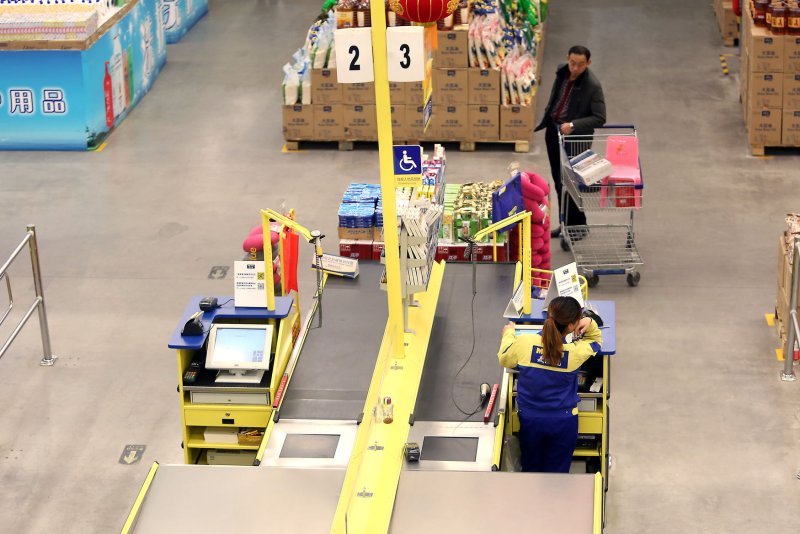Fewer than 30% of workers in the United States have paid sick leave protected by state law, according to a new study. File photo by Stephen Shaver/UPI |
License Photo
Feb. 10 (UPI) -- Fewer than 30% of workers in the United States have paid sick leave protected by state law, an analysis published Thursday by American Journal of Preventive Medicine found.
Some workers who have that benefit got it because 12 states nationally had passed laws requiring employers to provide it as of 2020, the researchers said.
Others may have it through their employers, though the benefit is not protected by law, according to the study.
In addition, 18 states without paid sick leave laws prohibit local governments from creating their own sick-leave regulations, limiting access to the benefit and exacerbating income inequality, they said.
"The COVID-19 pandemic has underscored the critical need for access to paid sick leave for workers, their families, and employers," study co-author Jennifer Pomeranz said in a press release.
"We need a federal policy solution that gives all workers access to paid sick leave benefits, especially low-wage workers who have no choice but to work when sick," said Pomeranz, an assistant professor of public health policy and management at NYU School of Global Public Health in New York City.
Providing sick employees paid time off allows them flexibility to seek medical care, as needed, and to recover from illness more quickly, according to Pomeranz and her colleagues.
In addition, sick leave availability has been linked with a lower risk for death among employees, the researchers said.
Over the course of the COVID-19 pandemic, paid sick leave has also benefited employers, as allowing people to stay home when sick limits the spread of the virus and other infectious diseases in the workplace, according to the researchers.
Workplace outbreaks can lead to widespread absenteeism and lost productivity, they said.
However, the United States is among the few high-income countries without a national law guaranteeing paid sick leave, funded by either employers or the government, Pomeranz and her colleagues said.
As a result, fewer than 60% of workers in service industries are offered paid sick leave, and fields such as such as food production, hospitality and retail rarely offer the benefit, leaving many employees vulnerable to lost wages and forcing them to work while sick, they said.
To fill this gap, some local and state governments have passed laws that require paid sick leave, the researchers said.
San Francisco was the first city to do so, in 2007, while Connecticut became the first state to enact a paid sick-leave mandate, in 2011, according to [email protected].
Surveys have found that many workers in the United States felt pressure to remain on the job, even amid safety concerns during the COVID-19 pandemic.
Others indicate that most workers support government safety nets such as paid sick-leave because of the concerns raised during the pandemic.
In this study, the researchers examined state paid sick leave laws and state laws pre-empting paid sick leave across the United States from 2009 to 2020.
At the time of the study, Arizona, California, Connecticut, Maryland, Massachusetts, Michigan, Nevada, New Jersey, New York, Oregon, Rhode Island and Vermont had enacted laws that require paid sick leave in some form, according to the researchers.
Colorado, Maine and New Mexico enacted laws in 2021-22, the Society for Human Resource Management reported.
Based on data from the U.S. Bureau of Economic Analysis and the U.S. census, 28% of all jobs nationally are covered by state-required paid sick leave laws as of 2019, the data showed.
However, as of 2020, 18 states without laws requiring employers to provide paid leave passed legislation to pre-empt local governments from passing their own paid sick policies, up from only one state pre-emption law in 2009, the researchers said.
Even in states requiring paid sick leave, the laws vary. with some exempting small or public employers and/or excluding certain occupations, they said.
"Excluding low-wage workers ... from paid sick leave protections only further exacerbates health disparities," study co-author José Pagán said in a press release.
"Many of [them] work in jobs that increase their risk for illnesses like COVID-19 and lack access to employer-based coverage," said Pagán, chair and professor of public health policy and management at NYU School of Global Public Health.















